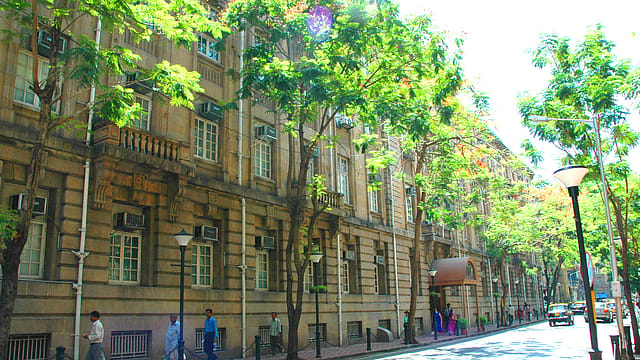Tata v Mistry: The final act?

Four years after Cyrus Mistry, then chairman of the mighty Tata Sons, the holding company of the $113-billion House of Tata, was unceremoniously removed from his position, the Mistry family has come out in public and said a separation of the family from Tata Sons would be in the best interests of all stakeholders. If this eventually happens—in other words, if the 18.4% stake held by the Mistry family in Tata Sons is eventually sold by them in such an arrangement—it would mark the end of a 70-year association between two of India’s most influential business groups.
The Mistry statement came on the evening of September 22 after the Supreme Court barred the SP Group from pledging or selling Tata Sons shares until October 28. The SP Group of the Mistrys has been seeking to pledge the shares to raise funds from various sources for a financial restructuring, something the Tata group has sought to challenge in the court. Tata Sons has reportedly offered to buy the stake.
Ever since the exit of Cyrus Mistry from the Tata Sons board in October 2016, the Tata group and the Mistrys have been locked in a series of bitter court battles over various aspects of corporate governance and shareholder rights in what has arguably become one of the most bitter corporate feuds ever witnessed in India. The Tata-Mistry battle has continued to haunt the two sides since, which is why the latest twist in the story could lead to the corporate sector and shareholders heaving a sigh of relief. India’s corporate world has been bitterly divided ever since the feud broke, with several prominent industrialists pitching in for one side or the other.
But is a parting of ways going to be easy?
By most accounts, this final act in the Tata-Mistry battle may turn out to be its most interesting one yet, but there are few who are willing to bet on the final outcome at this stage. That’s because, with the SP Group now publicly willing to exit the House of Tata, the valuation of the 18.4% stake assumes utmost importance. Equally important is the manner in which the Tata group will raise the funds to buy this stake.
Already, newspaper reports have pointed to the major discrepancy in valuation of the stake seen by the two sides. A report in The Times of India has pointed to a 2016 valuation undertaken by well-known chartered accountant Yezdi H. Malegam which pegged Tata Sons’ value at ₹3.1 lakh crore and, consequently, the Mistrys’ stake at ₹57,600 crore at the time. On the other hand, the Mistrys have pegged Tata Sons’ value at a much higher ₹9.7 lakh crore, and their own stake at ₹1.8 lakh crore, according to the same report. If this is a starting point, it is good enough indication of the kind of negotiation that may become necessary before both sides arrive at some common ground.
Long-time Tata watcher and well-known lawyer H.P. Ranina tells me that while an amicable separation of the two sides would obviously be good news for all stakeholders, valuation of the stake would hold the key and could be a potential cause for disagreement once again. Ranina says if the disagreement continues despite the valuers’ opinions on both sides, the matter could even land in court again, with the court appointing a mediator or arbitrator who would then sit with both sides to arrive at an agreeable valuation.
The second important point pertains to how Tata Sons will fund the acquisition of the 18.4% stake held by the Mistrys. Ranina says one of the options could be for the Tata group to get in a clutch of private equity majors and diversify the 18% shareholding whereby no one group or entity has any large chunk. A dispersed shareholding with a few pedigreed private equity majors could be an option to consider. In any case, the Tata group would need to raise a substantial amount and according to most analysts, Tata Consultancy Services (TCS), the crown jewel which contributes the majority of the group’s market capitalisation, could have to play a role in such an effort. According to the latest figures on the BSE website, TCS has a market capitalisation of over ₹9.2 lakh crore with the Tata group holding 72% stake in the company. Ranina reckons if both sides come to an agreement, a deal could also involve a mix of cash and stake if the Mistrys are interested in taking over one of the group companies.
Shares of SP Group company Sterling and Wilson Solar surged in trading a day after the group announced it was willing to exit Tata Sons with shareholders now hoping for an amicable settlement.
However, while the final act of the Tata versus Mistry drama has just begun, it could well be another set of twists and turns before the curtain finally falls on this battle of heavyweights. As Ranina says, valuation is more an art than a science. It’s how well the two sides play the valuation game which will decide how, and under what terms, they decide to part ways.